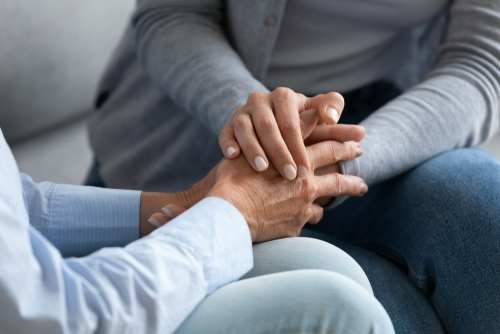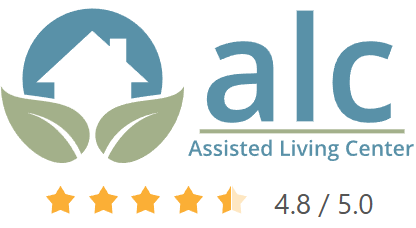Grief and loss are universal experiences that touch everyone at various stages of life. As we age, these encounters often become more frequent and can involve significant changes such as the loss of loved ones, deteriorating health, or the end of a career.
While grieving is a natural response to loss, it can feel particularly overwhelming later in life. A lot of the elderly in West Hollywood can handle these periods better with senior home care at their disposal. Whether you have caretakers or not, there are effective strategies for coping with grief and navigating through this challenging season.
How do older people deal with grief?
Take a look at the following tips to handle this difficult time more easily:

1. Allow Yourself to Grieve
It’s important to remember that it’s okay to feel sorrow and grief. Every individual experiences grief differently – there’s no right or wrong way to mourn. Give yourself permission to express your emotions openly and without judgment.
2. Seek Out Support
You don’t have to go through grief alone. Reach out to friends, family, or community members who can provide emotional support. Engaging in heartfelt conversations can often bring solace and comfort during tough times.
3. Join a Support Group
Consider joining a grief support group. These groups offer a safe environment to share experiences, feelings, and coping strategies. They provide a sense of community and understanding, helping you realize that you are not alone in your journey through grief, regardless of the generation you’re in.
4. Stay Physically Active
Although grief can be mentally draining, it’s essential to remember to maintain your physical health. Light exercises such as walking, stretching, or yoga can boost mood and relieve stress.
5. Embrace Healthy Habits
Maintaining a balanced diet, getting enough sleep, and avoiding harmful substances like alcohol can improve your emotional well-being. Healthy habits can significantly influence your capacity to cope with grief.
6. Pursue Hobbies and Interests
Engaging in activities you enjoy can provide a welcome distraction from grief. Hobbies not only fill your time but also bring a sense of achievement and satisfaction, aiding in the healing process.
7. Seek Professional Help
If grief begins to significantly impact your daily functioning or persists for an extended period, consider seeking professional help. Mental health professionals can provide strategies and treatments to help manage grief and prevent it from developing into severe conditions like depression.
8. Remember and Honor Loved Ones
Honoring the memory of your loved ones can bring comfort. Whether it’s through storytelling, creating a photo album, or simply lighting a candle in their memory, these activities can help you cherish the times you spent together.

Navigating through grief and loss later in life can be a challenging journey. But remember, there’s no set timeline for grief. It’s a deeply personal and unique experience. Allow yourself to grieve, seek support, and pay attention to your overall well-being. By acknowledging your feelings and reaching out when you need help, you can foster resilience and find a path to healing.
Where in West Hollywood and the surrounding area can I find dependable senior home care?
Coping with grief and loss can be overwhelming, especially when coupled with the challenges of aging. A Better Way in Home Care can connect you with caregiving experts who will offer compassionate support during these challenging times.
These experienced caregivers understand the complexities of grief, providing emotional support and help with day-to-day tasks, from helping with the usage of technology to talk to loved ones, to providing medication reminders. They prioritize creating a comfortable, safe, and caring environment for you right in your space. Whether you live by The Roxy Theatre or in another part of the city, we’re here to help. With us, you can focus on healing and self-care, knowing that your practical needs are being handled with kindness and professionalism.








